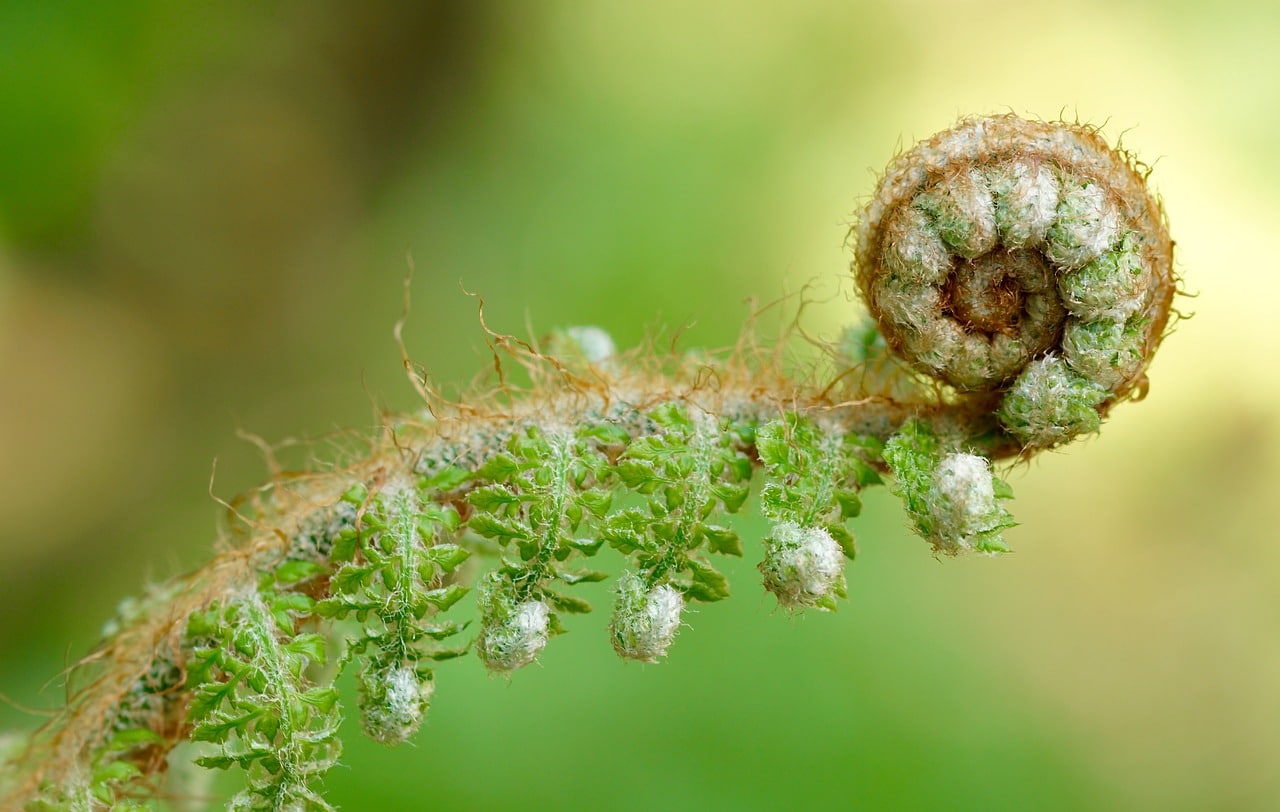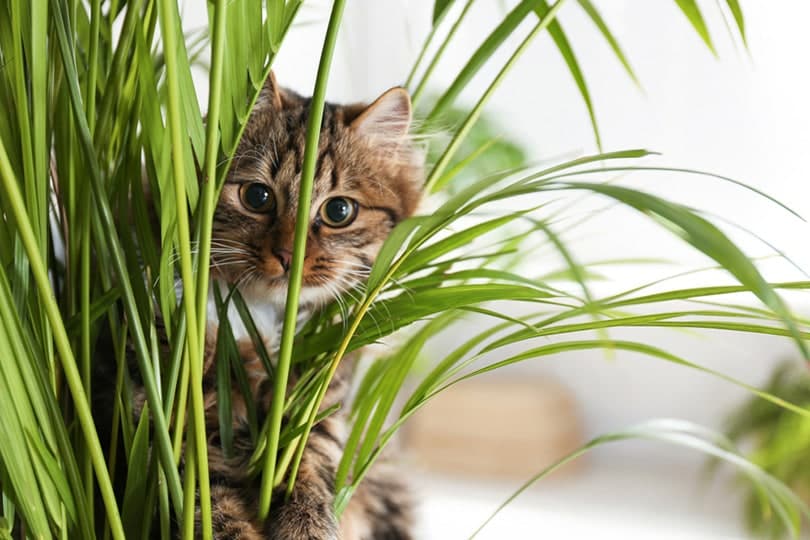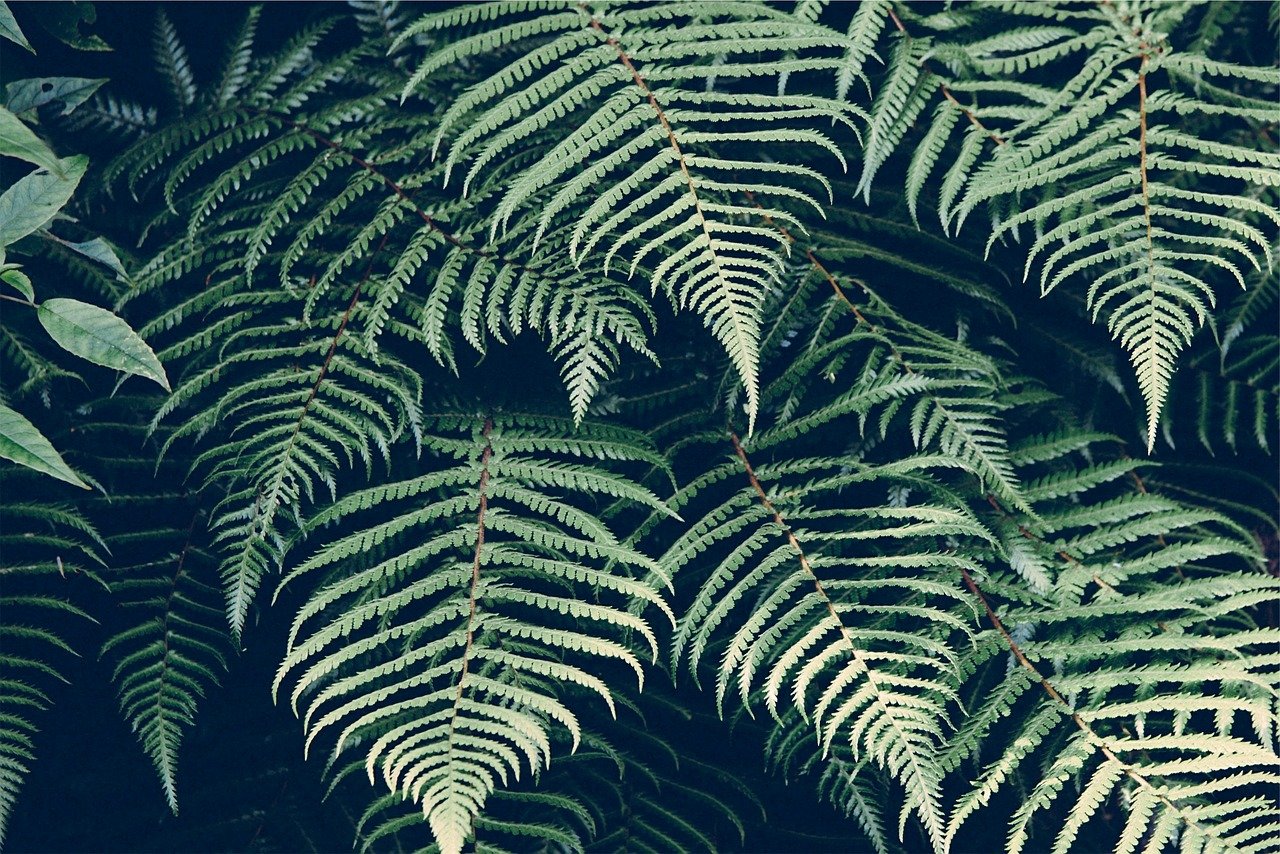Many of us have ferns in our homes and gardens. Garfield, the fictional cat, was known to be a firm favorite of the fern, along with lasagna of course. But is this popular houseplant actually safe to be around felines, or should it be placed behind closed doors or saved for the confines of a catless home?
Ferns from the family Polypodiaceae are not toxic for cats, although you should try to stop your four-legged friend from eating entire fern plants. Some fern-like plants are toxic, too, including some plants that have fern in the name, even though they aren’t true ferns.

Are Ferns Toxic to Cats?
Cats are intelligent animals, but this doesn’t mean that they are completely risk averse. Sometimes they get a little too close to the neighbor’s dog. Other times, they look like they’re picking a fight with the larger and tougher cat from the house at the back. Tragedy can befall or furry friends, and one way that this can happen is from eating toxic ingredients and foods. You can’t rely on your cat to avoid all plants that are unsafe for them.
Fortunately, the fern is not toxic to cats. This doesn’t mean that they should regularly eat large amounts of the plant, but if they occasionally sniff or even try to eat a fern leaf, no harm should befall them.

Are Ferns Safe for Cats to Eat?
Ferns are safe to have and grow around cats. If your cat tries to eat a leaf or two, they shouldn’t get ill. If they try to eat an entire fern, it may well cause an upset stomach, however.

Asparagus Ferns
It is worth mentioning the asparagus fern, at this point, because it is a popular houseplant. It is not a true fern, despite the name. The plant itself can be mildly toxic, and the berries could cause your cat to be quite ill. Eating this plant can lead to gastrointestinal upset including vomiting and diarrhea. If your cat comes into contact with this plant, it can lead to skin irritation.
If you believe your cat has indeed eaten any asparagus fern, you should seek veterinary assistance. They will be able to advise you of the best steps to take and whether your cat needs any treatment.
Fern-like Plants
The asparagus fern, also known as lace fern, is just one example of a range of popular houseplants that contain the word fern but that are not actual ferns. Many of these plants can be poisonous, or toxic, to your cat. The winter fern or poison hemlock is another example, and if your cat has eaten this plant, you should seek immediate help, as ingestion may lead to gastrointestinal signs, tremors, paralysis, and death.

What Plants Are Dangerous for Cats?
Some very common houseplants are toxic for cats and are best avoided if you have inquisitive cats that chew on items around the house. Some of the most common toxic household plants include:
- Peace Lilies – Peace lilies are especially popular around Easter time. They have appealing white flowers and are considered low maintenance plants. However, they contain calcium oxalates, which can cause vomiting, oral damage, and a host of other problems for your cat.
- Aloe Vera – Aloe vera is a popular houseplant, not least because of the health benefits it offers to people. However, the plant does not herald the same benefits for cats and can be toxic if ingested.
- Money Plants – The money plant, or crassula, is a succulent plant and easy to grow. As with most succulents, you don’t have to worry about watering them too often. Also known as jade plants, these are toxic to dogs, cats, and even horses.
- Snake Plants – Snake plants grow very well in low light conditions, which makes them perfect for hallways and other areas in the house where there is no natural light. However, the saponins they contain can cause vomiting and other problems if consumed by cats or dogs.
What Plants Are Safe for Cats?

Not all plants are toxic for cats, however, and there is a good selection of decorative flowers and attractive plants that you can safely grow at home, as well as the fern.
- African Violet – The African violet blooms in low light and enjoys reasonable temperatures and humidity. The violet will usually fare well in a household environment and is safe to grow even when you have cats that are prone to pruning plants when peckish.
- Banana Plant – With its giant leaves, the banana plant can be a bit more challenging to grow, requiring good soil, bright light, and regular watering, but at least it won’t poison your cat if they choose to chew it.
- Spider Plant – The spider plant is another common houseplant that is perfectly safe to have around cats, although if your cat strips the end of leaves, it can start to look bedraggled and worn.
- Venus Flytraps – Carnivorous plants are intriguing and unique. The Venus flytrap is the best known and will close around and digest flies and spiders, but it won’t attempt to digest or otherwise harm your cat.

Are Ferns Toxic to Cats?
Ferns are safe to grow around cats, hence why Garfield was such a fan. However, other houseplants and some plants with fern in the name can be highly toxic for your cat and may make him ill or even cause death. Above, we have listed five plants that are safe to keep with cats, as well as five that should not be kept with feline residents.
You might also like:
- Are Peace Lilies Toxic to Cats? What You Need to Know!
- 11 Most Intelligent Cat Breeds (With Pictures)
Featured Image Credit: Pixabay






